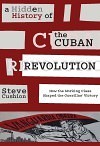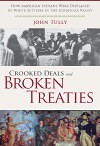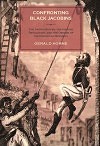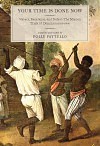History
In a New York Times editorial on August 15, 2015, the editors, following the NAACP, cautioned that the movement for students to opt out of high-stakes standardized exams was detrimental to minority students and their communities. The rigorous accountability measures of high-stakes exams, it was claimed, compelled teachers and schools to do a better job educating traditionally oppressed students.… Such views ignore the history of high-stakes testing, which has served to perpetuate class inequality and advance white supremacy since intelligence testing was developed during the First World War. More than anything else, standardized testing measures students’ access to resources and proximity to dominant cultures, rather than innate ability or quality of teaching. The accountability movement has successfully exploited the existing inequalities of a white-supremacist, capitalist society to argue that high-stakes testing, one of its primary tools, is helping to overcome those same inequalities. | more…

Millions of words have been written about the Cuban Revolution, which, to both its supporters and detractors, is almost universally understood as being won by a small band of guerillas. In this unique and stimulating book, Stephen Cushion turns the conventional wisdom on its head, and argues that the Cuban working class played a much more decisive role in the Revolution’s outcome than previously understood. Although the working class was well-organized in the 1950s, it is believed to have been too influenced by corrupt trade union leaders, the Partido Socialist Popular, and a tradition of making primarily economic demands to have offered much support to the guerillas. Cushion contends that the opposite is true, and that significant portions of the Cuban working class launched an underground movement in tandem with the guerillas operating in the mountains. | more…
Karl Marx has long been criticized for his so-called ecological “Prometheanism”—an extreme commitment to industrialism, irrespective of natural limits. This view, supported even by a number of Marxists, such as Ted Benton and Michael Löwy, has become increasingly hard to accept after a series of careful and stimulating analyses of the ecological dimensions of Marx’s thought, elaborated in Monthly Review and elsewhere. The Prometheanism debate is not a mere philological issue, but a highly practical one, as capitalism faces environmental crises on a global scale, without any concrete solutions. Any such solutions will likely come from the various ecological movements emerging worldwide, some of which explicitly question the capitalist mode of production. Now more than ever, therefore, the rediscovery of a Marxian ecology is of great importance to the development of new forms of left strategy and struggle against global capitalism.… Yet there is hardly unambiguous agreement among leftists about the extent to which Marx’s critique can provide a theoretical basis for these new ecological struggles.… This article… [takes] a different approach… [investigating] Marx’s natural-scientific notebooks, especially those of 1868, which will be published for the first time in volume four, section eighteen of the new Marx-Engels-Gesamtausgabe(MEGA). | more…
Rula Jurdi Abisaab and Malek Abisaab, The Shi’ites of Lebanon: Modernism, Communism, and Hizbullah’s Islamists (Syracuse, NY: Syracuse University Press, 2014), 350 pages, $49.95, hardcover.
In the West today, political Islam is mostly equated with ISIS’s spectacle of violence, and with the narrow, bigoted understanding of religion and society that inspires it. It will thus intrigue many readers to discover that the legacy of Islamic intellectual and political activity, from the turn of the twentieth century until today, bore the imprint of a complex interaction between Communist and leftist traditions. A recent book by two professors at McGill University, Rula Jurdi Abisaab and Malek Abisaab, takes on the ambitious task of tracing the history of the sometimes symbiotic, sometimes confrontational relationship among Shi’i communities and clerics in Lebanon, along with occasional discussions of related issues in Iraqi politics. Based on a rich set of primary documents from both countries, the authors describe in great detail the rise and fall of the Communist experience in the region, the shortcomings of the left as it was gradually superseded by Islamic party formations, and the deep debt of the latter to the former. | more…
John M. Kirk, Health Care without Borders: Understanding Cuban Medical Internationalism (Gainesville, FL: University Press of Florida, 2015), 376 pages, $79.95, hardback.
When the Ebola virus began to spread through western Africa in fall 2014, much of the world panicked. Soon, over 20,000 people were infected, more than 8,000 had died, and worries mounted that the death toll could reach into hundreds of thousands. The United States provided military support; other countries promised money. Cuba was the first nation to respond with what was most needed: it sent 103 nurses and 62 doctors as volunteers to Sierra Leone. With 4,000 medical staff (including 2,400 doctors) already in Africa, Cuba was prepared for the crisis before it began: there had already been nearly two dozen Cuban medical personnel in Sierra Leone.… Since many governments did not know how to respond to Ebola, Cuba trained volunteers from other nations at Havana’s Pedro Kourí Institute of Tropical Medicine. In total, Cuba taught 13,000 Africans, 66,000 Latin Americans, and 620 Caribbeans how to treat Ebola without being infected. It was the first time that many had heard of Cuba’s emergency response teams.… The Ebola experience is one of many covered in John Kirk’s new book Health Care without Borders: Understanding Cuban Medical Internationalism. | more…
Blessed were the times when a man’s decision about his fate lay in his own hands. Blessed were the times when he relied upon himself and was under no one’s direct command and formed his life through his direct relationship to nature. These were times of transparent clarity; these were times of child-like belief in God; these were times of inner peace. The environment [Umwelt] of the man of that time existed outside of his horizon; its events passed him by or broke into his life naturally, suddenly, overwhelmingly. Wars and starvation, epidemics and bad harvests stood on the same plane—they were to man equally strange, equally incomprehensible, equally remote.… This assault of his environment into his existence, these catastrophes which from time to time would bring his life into turmoil, man could not explain to himself. For they were of a different type than he was; for they were covered by a thick impenetrable shroud…. Faith replaced knowledge at that time; prayer replaced action, and fear replaced circumspection. | more…
On October 1, 1965, the teletype in the White House relayed the account of a supposed “coup” by a group of Indonesian army officers calling themselves the September 30th Movement. In Jakarta the movement, which had begun the night before under the alleged leadership of Lieutenant Colonel Untung with the kidnapping and killing of six generals of the Indonesian Army High Command, was already unraveling. The September 30th Movement was a relatively small-scale affair. It was poorly planned and so clumsily executed that it seemed almost preordained to fail. Major General Suharto…took control of the army, and blamed what he labeled a “coup attempt” entirely on the Indonesian Communist Party (PKI). Within two weeks, a much more momentous army-led and U.S.-backed movement to exterminate the PKI and its supporters was under way. Working with Muslim organizations, student groups, and other anti-Communist organizations, the army proceeded over the next five months to murder hundreds of thousands of unarmed, alleged PKI members. The slaughter paved the way for the army’s ouster of Sukarno in March 1966, its ascension to power, and the reconfiguration of Indonesian politics and foreign policy.… The liquidation of the PKI in Indonesia was “perhaps the greatest setback for Communism in the Third World in the 1960s” and an event with enormous implications for each of the Great Powers. | more…

Long before the smokestacks and factories of industrial Akron rose from Ohio’s Cuyahoga Valley, the region was a place of tense confrontation. Beginning in the early 19th-century, white settlers began pushing in from the east, lured by the promise of cheap (or free) land. They inevitably came into conflict with the current inhabitants, American Indians who had thrived in the valley for generations or had already been displaced by settlement along the eastern seaboard. Here, on what was once the western fringe of the United States, the story of the country’s founding and development played out in all its ignominy and drama, as American Indians lost their land, and often their lives, while white settlers expanded a nation. | more…

The Haitian Revolution, the product of the first successful slave revolt, was truly world-historic in its impact. When Haiti declared independence in 1804, the leading powers—France, Great Britain, and Spain—suffered an ignominious defeat and the New World was remade. The island revolution also had a profound impact on Haiti’s mainland neighbor, the United States. Inspiring the enslaved and partisans of emancipation while striking terror throughout the Southern slaveocracy, it propelled the fledgling nation one step closer to civil war. Gerald Horne’s path breaking new work explores the complex and often fraught relationship between the United States and the island of Hispaniola. Giving particular attention to the responses of African Americans, Horne surveys the reaction in the United States to the revolutionary process in the nation that became Haiti, the splitting of the island in 1844, which led to the formation of the Dominican Republic, and the failed attempt by the United States to annex both in the 1870s. | more…
Sven Beckert, Empire of Cotton: A Global History (New York: Knopf, 2014), 640 pages, $35, hardback.
For four years following the 2008 mortgage crisis, I worked as a cotton merchant for one of the “big four” trading firms—ADM, Bunge, Cargill, and Louis Dreyfus. These shadowy giants, two of them privately held, maintain oligopoly control of agricultural commodity markets. From desks in Memphis, my colleagues and I purchased mountains of cotton in Asia, Africa, and the Americas, warehoused it, speculated on it, and sold it back to mills on those same continents.… We sat at the pinnacle of a web of political and economic forces that funneled cotton into facilities we owned and cash into our accounts, but nowhere in the office was there a visible sign of the violence that made it all possible.… Too often liberal histories focus on a single period, territory, or class perspective, and end up obscuring the truth, severing the threads that tie a moment to its historical roots. Sven Beckert’s Empire of Cotton is different. Although a liberal historian, Beckert refuses to limit his scope in the traditional way. Instead, he follows the movement of cotton across time, space, and class, bringing forward the threads that bind the objects of an otherwise distorted past. | more…
The Violent Story of Slavery and the Beginning of American Capitalism
Edward E. Baptist, The Half Has Never Been Told: Slavery and the Making of American Capitalism (New York: Basic Books, 2014), 528 pages, $35, hardcover.
For an estimated hundreds of thousands of people, including some 60,000 workers who had served notice to their bosses, April 15, 2015, was strike day—reportedly the largest mobilization of low-wage workers since May Day of 1886, when a half million workers and their families (10 percent of the population at the time) struck for the eight-hour work day. Hundreds of us from here in Tennessee joined fast food workers, adjuncts, and home and child-care workers in the morning for strike actions, and many of us boarded buses to St. Louis and Ferguson, Missouri, for a Black Lives Matter protest that brought together strikers and supporters from all across the region. It was an intense and exact showcase of the irrevocable knot of violent and permanent racism in this country, and its broadening (and racialized) wealth and income gap and the deepening, permanent poverty of working-class life.… There is no legitimate history of this nation’s past and present that can deny the twin realities of extreme economic exploitation of people of color, especially African Americans, and the incredible violence perpetrated against them. Edward Baptist’s The Half Has Never Been Told draws these two realities together in his contribution to the new set of histories of U.S. capitalism, slavery, and cotton, which include Sven Beckert’s Empire of Cotton and Walter Johnson’s River of Dark Dreams. | more…

Maroons, self-organized communities of runaway slaves, existed wherever slavery was present. One of the most vital and persistent maroon communities was tucked away in the mountainous rainforests on the Caribbean island of Dominica, at the time a British colony. This “state within a state,” as the colonial authorities tellingly described it, posed a direct challenge to the slavery system, and before long, the Dominican Maroons rose up to challenge the British Empire. Ultimately, they were captured and put on trial. Here, for the first time, are primary documents, carefully edited and contextualized, that richly present the voices and experiences of the Maroons—in resistance and defeat. | more…



